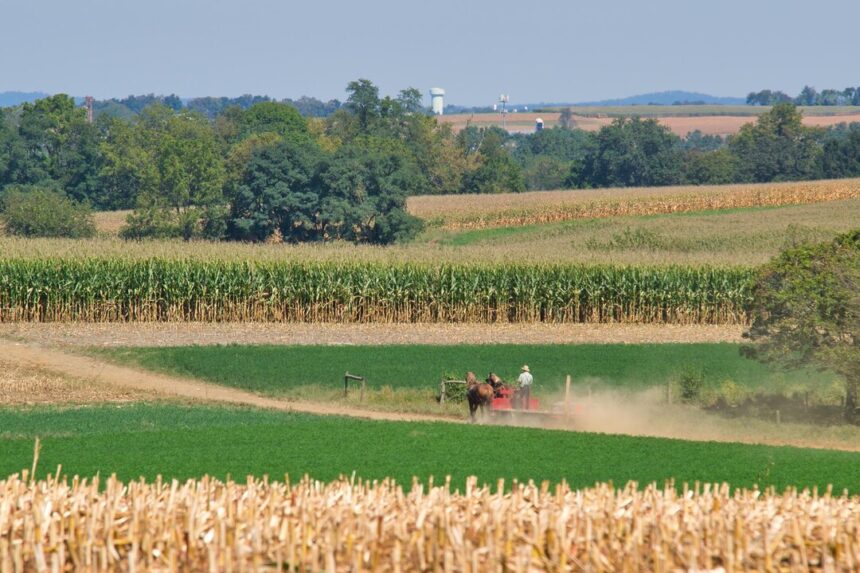Sustainable farming is essential for preserving natural resources while ensuring food security for future generations. However, some common farming practices can unintentionally harm the environment, leading to soil degradation, water pollution, and biodiversity loss. For South African farmers, understanding these pitfalls and adopting sustainable practices is vital for maintaining productivity and protecting the environment. Below are 10 common mistakes in farming practices that harm the environment and ways to address them.
1. Overuse of Chemical Fertilizers and Pesticides
Excessive use of synthetic fertilizers and pesticides is a significant contributor to soil and water pollution. Chemicals can leach into groundwater or runoff into rivers, causing algal blooms and harming aquatic ecosystems. Farmers can reduce chemical dependency by adopting integrated pest management (IPM), using organic fertilizers, and planting pest-resistant crop varieties.
2. Poor Irrigation Practices
Inefficient irrigation methods, such as flood irrigation, often lead to water wastage and soil salinization. Over-irrigation can also deplete local water resources and harm ecosystems. Drip irrigation or sprinkler systems can improve water efficiency. Monitoring soil moisture levels using sensors can further optimize water use.
3. Monocropping
Planting the same crop repeatedly depletes specific nutrients from the soil and increases vulnerability to pests and diseases. This practice reduces biodiversity and weakens the ecosystem. Crop rotation and intercropping with legumes or cover crops can restore soil fertility, prevent pest outbreaks, and enhance biodiversity.
4. Clearing Indigenous Vegetation
Many farmers clear native vegetation to expand agricultural land. This leads to habitat destruction, reduced biodiversity, and soil erosion. Maintaining buffer zones of indigenous vegetation around farmlands can protect biodiversity, prevent soil erosion, and provide natural pest control.
5. Overgrazing
Allowing livestock to graze excessively in one area leads to soil compaction, loss of vegetation cover, and erosion. This degrades the land and reduces its productivity over time. Implementing rotational grazing systems and maintaining adequate vegetation cover can help restore soil health and prevent degradation.
6. Neglecting Soil Conservation Practices
Erosion, compaction, and nutrient depletion are common results of neglecting soil conservation. Practices like plowing steep slopes or leaving fields bare during the off-season exacerbate these issues. Farmers should adopt contour plowing, terracing, and cover cropping to prevent soil erosion and improve soil fertility.
7. Burning Crop Residues
Some farmers burn crop residues to clear fields quickly. This practice releases greenhouse gases, destroys soil organic matter, and harms beneficial soil organisms. Instead, crop residues can be used as mulch or compost to improve soil fertility and structure.
8. Excessive Land Tilling
Frequent and deep tilling breaks up soil structure, reduces its ability to retain water, and increases erosion. Over time, this leads to decreased soil fertility and productivity. Reduced-till or no-till farming methods help preserve soil structure, retain moisture, and enhance microbial activity.
9. Mismanagement of Agricultural Waste
Improper disposal of waste, such as plastic mulch, pesticide containers, or manure, can pollute the environment and harm wildlife. Farmers should implement proper waste management practices, including recycling, composting organic waste, and safely disposing of hazardous materials.
10. Failure to Adopt Renewable Energy Solutions
Relying solely on fossil fuels for farm operations contributes to greenhouse gas emissions. Many South African farmers overlook renewable energy solutions such as solar-powered irrigation pumps or biogas systems. Transitioning to renewable energy reduces environmental impact and lowers long-term energy costs.
How to Address These Issues
- Education and Training: Farmers should attend workshops and collaborate with agricultural extension officers to learn sustainable practices tailored to their regions.
- Adopt Technology: Use precision farming tools to monitor soil health, water use, and crop performance, ensuring resources are used efficiently.
- Government and NGO Support: Take advantage of government subsidies, grants, and NGO programs promoting sustainable farming in South Africa.
- Community Collaboration: Collaborate with other farmers to share resources, ideas, and innovations for sustainable farming.
South African farmers play a critical role in safeguarding the environment while ensuring agricultural productivity. By avoiding these common mistakes and adopting eco-friendly practices, farmers can strike a balance between farming needs and environmental sustainability. Investing in sustainable methods not only protects the environment but also ensures long-term farm profitability and resilience against climate change.
Join 'Farmers Mag' WhatsApp Channel
Get the latest Farming news and tips delivered straight to your WhatsApp
CLICK HERE TO JOIN






